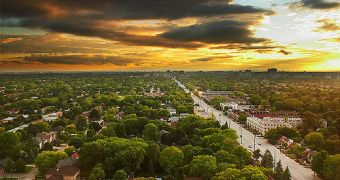On May 7, the US Forest Service announced that, according to their investigations, urban forests spread all throughout the country's territory store a whopping 708 million tons of carbon.
Specialists estimate that the value of the environmental service performed by these trees is one of $50 billion (€38.2 billion).
As detailed on the official website for the US Forest Service, the country's urban forests have a yearly uptake of carbon of 21 million tons.
Their taking this much carbon out of the air and storing it translates into a $1.5 billion (€1.14 billion) economic benefit.
The specialists who took the time to investigate this issue say that urban forests in different states do not have the same carbon storage and sequestration rates, seeing how these depend on the total urban tree cover and on the growing conditions the trees are exposed to.
According to the same source, Texas, Florida, Georgia, Massachusetts and North Carolina take the lead when it comes to how much carbon their urban forests store.
Commenting on the findings of this research, US Forest Service Chief Tom Tidwell made the following observations:
“With expanding urbanization, city trees and forests are becoming increasingly important to sustain the health and well-being of our environment and our communities.”
“Carbon storage is just one of the many benefits provided by the hardest working trees in America. I hope this study will encourage people to look at their neighborhood trees a little differently, and start thinking about ways they can help care for their own urban forests,” Tom Tidwell further argued.
On a national scale, forestlands are believed to store about 22.3 billion tons of carbon.
Now that urban forests have also been taken into consideration, the overall carbon storage of trees in the US is said to be one of roughly 22.7 billion tons.
The US Forest Service warns that, as one other recent study has shown, the country's urban forest cover is declining at alarming rates.
“More urbanization does not necessarily translate to more urban trees. Last year, Nowak and Eric Greenfield, a forester with the Northern Research Station and another study co-author, found that urban tree cover is declining nationwide at a rate of about 20,000 acres per year, or 4 million trees per year,” the agency explains.
Needless to say, this last piece of news is something that people and high officials should really start worrying about.

 14 DAY TRIAL //
14 DAY TRIAL //